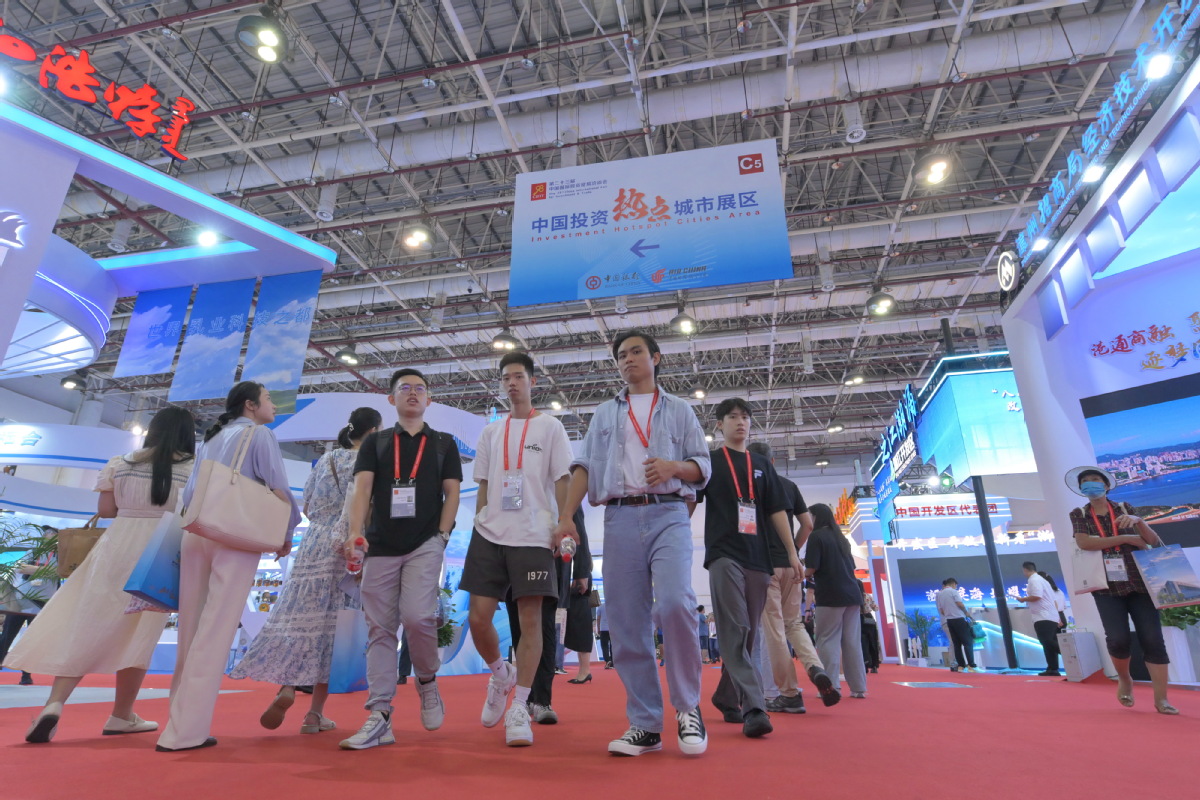Experts: Global FDI hurt by worldwide woes






China, thanks to its efforts to prompt economic growth, has been making greater contributions to the world's GDP, which will make any moves of decoupling with the nation unsustainable, officials and business leaders said during an investment fair in Xiamen, Fujian province.
They made the remarks at the 23rd China International Fair for Investment and Trade over the weekend, which concluded on Monday, where the Chinese version of the World Investment Report was released by the United Nations Conference on Trade and Development.
Last year, global foreign direct investment dropped by 12 percent year-on-year to $1.3 trillion, the biggest drop since 2009 with the exception of 2020 when COVID-19 hit, according to the report.
FDI worldwide continued to decline in 2022 — investment from developed countries dropped 37 percent on a yearly basis. However, FDI from developing countries increased 4 percent to $916 billion, accounting for over 70 percent of the global flow, a record-high proportion, the report found.
Chong Quan, chairman of the China Society for WTO Studies, said in Xiamen that developing countries have been focusing on facilitating and opening up new sectors or activities to FDI.
"It is worth studying China's comparative advantages, which would help in making better decisions if these are made clear," Chong said.
In addition, scrutiny of global FDI has been strengthening and the number of countries conducting investment reviews on national security grounds increased to 37.
Last year, the number of countries implementing the FDI review system accounted for 68 percent of the total. The number of mergers and acquisitions canceled due to regulatory or political concerns increased by one-third, and most of those measures were proposed by developed countries, the report said.
Meanwhile, Zhan Xiaoning, director of investment and enterprise at the United Nations Conference on Trade and Development, said multiple global crises and challenges have hurt global FDI. These crises include the Russia-Ukraine conflict, soaring food and energy prices, and recession and debt pressures faced by many countries.
"Technological innovation, sustainable development and global governance will jointly influence a future global industrial chain adjustment. The direction of the adjustment is to regionalize the industrial chain with the operation of the industrial chain developing toward a shorter and more concentrated direction," Zhan said.
He added that the industrial chain will shift from a pattern that is dominated by traditional multinational enterprises to a platform economy and international investment will gradually move toward light-asset development.
Moreover, the Investment Facilitation for Development Agreement, a joint initiative with the most significant impact and the best development momentum of the WTO, has received support from both developing and developed members, said Li Chenggang, China's ambassador to the WTO.
So far, more than 110 WTO members have participated in investment facilitation negotiations, accounting for more than two-thirds of the total members. In addition, two-thirds of the proposals in the negotiations were proposed by developing country members, Li said.
































